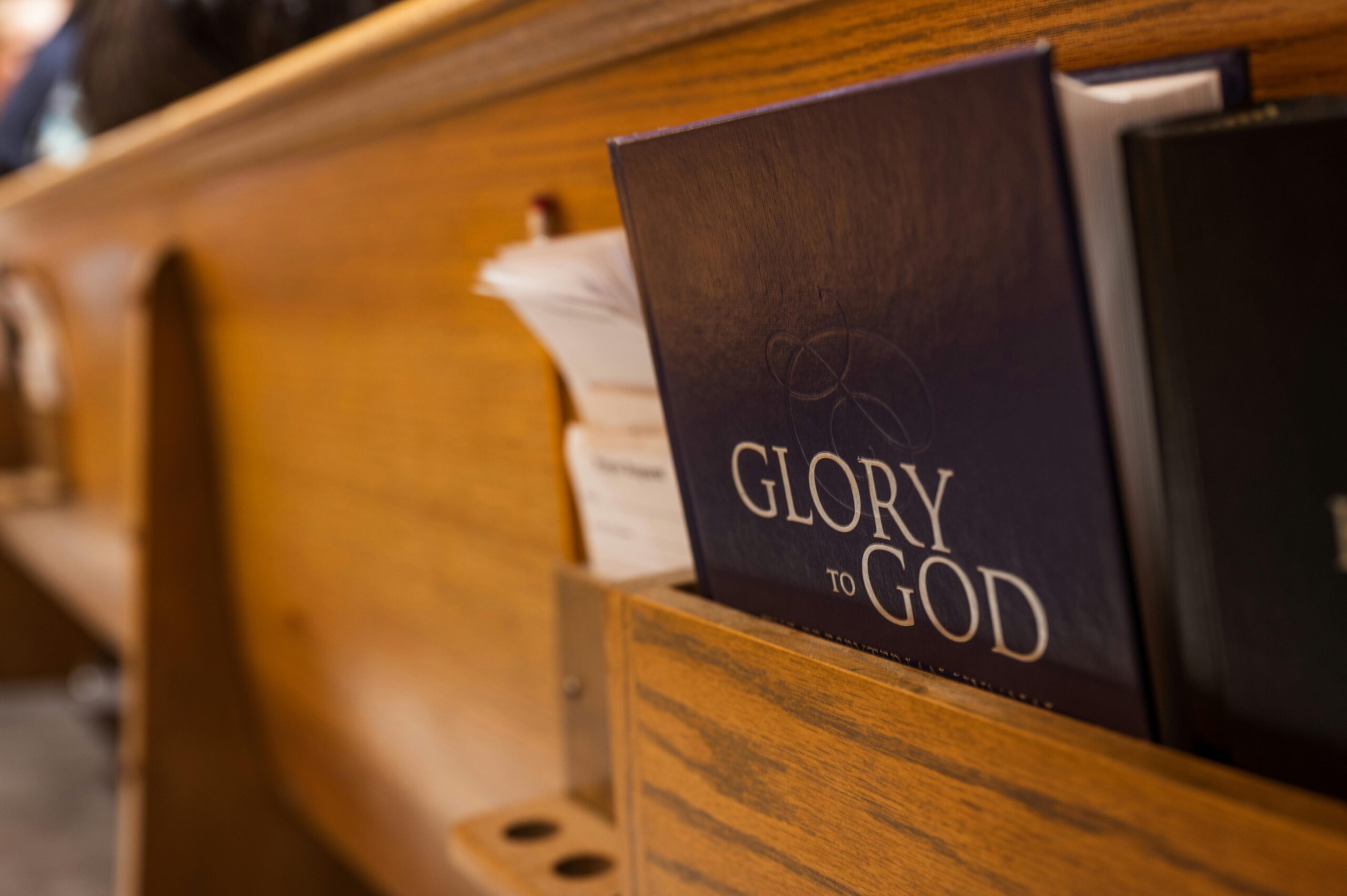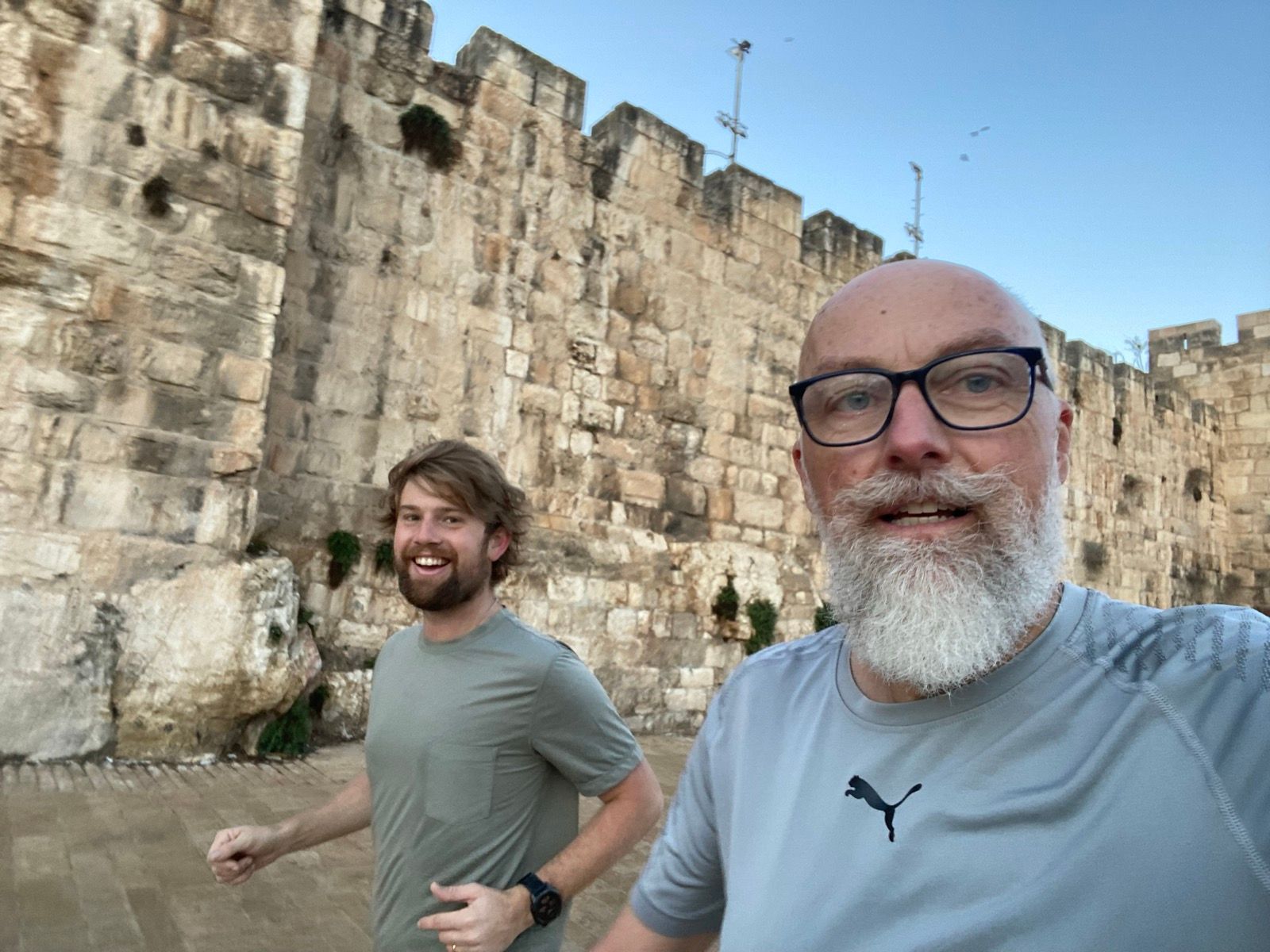August 8, 2025
Apologetics: How I Answered the Confirmation Bias Question at a Local School
The Confirmation Bias Question
I had a great couple of days at a school in Sydney recently, sharing the gospel and doing some apologetics with Yr 12 students before the run in to their final exams. It’s fair to say that they’re under a lot of pressure, and have a lot on their plate, so it would be understandable if a class lesson on Ecclesiastes and the mistiness of life was simply a box to tick.
But they were great students, and it’s a great school with a well thought out Christian Living program and uniformly excellent teachers and chaplain. All in all it was a tiring ten sessions (I had to be on my toes with these bright young things), but well worth it.
There were lots of interesting questions and plenty of push-back about Christianity too. Which is, after all, the point of having an apologetic session. One class in particular was fairly vociferous, though all in keeping with the cut and thrust of the general tone. No questions were off limits.
But it was interesting that the “confirmation bias” question was raised when it came to my assertion that being at 58 years of age Jesus is more to me than he was at the age of eight, when I first remember the conscious decision that I wanted to follow him. As I told the class I became a Christian aged eight, “after a life time of drugs and prison”. In other words no great whizz bang salvation story!
But back to the question of confirmation bias. It’s a great silencer for many Christians, and a great way – on the surface – to bat away the Christian claims. The aim of the question is to diminish the claims I am making because I am not making them from a neutral stance. In other words I’m only a Christian because of church, because of belonging to Christian community, and because I am immersing myself in Christian things.
How did I handle that question? Because it’s one you are going to hear all of the time. Here’s how I mapped this one out (though it feels clearer in the writing of it than it did in the off-the-cuff explanation of it in class).
I know that many of you know these things already, but when you have to answer them IRL it pays to have a good framework in place beforehand. So here’s the roadmap of what I did.
I Admitted it – and Cheerfully:
Of course! Of course all of those things shape me. And that, I said, is kinda the point of belonging to a Christian community. And it’s kinda the point of those people who wish to move away from Christianity, that they stop spending time with the people of God. I told them that the community of Christians I belong to shapes my life, and gives me a lens through which to look at the world. In a sense I layered it on pretty thickly.
At no point did I want to demur and somehow give the impression that I alone came to deep conclusions about Christianity from some mythical position of neutrality. The fact that such a view still exists – that there is some sort of view from nowhere – should not surprise us. Plenty of water has flown under the post-modern “hidden power play” bridge, but some people will still pull out the confirmation bias counter to the faith.
In such settings people are generally waiting for you to defend yourself and jump onto the back foot. That then becomes a verbal sword fight in which the parry and thrust of the conversation is designed to catch you out. But the counter-intuitive move to cheerfully admit it is the correct one – both in terms of actual fact (it’s true) and in terms of strategy (it’s helpful and can work well in apologetic settings. Basically: “Yep, you’re getting no argument from me!
So what next?
I Denied it – and Cheerfully:
Say what? This was perhaps the point in the conversation in which I was most revealing about my true nature. And it’s kinda the flip side of the first point, but it also strengthens my case. It’s also fairly confronting to have to do, but in this day and age of “authenticity” it is something you have to do in apologetics.What do I mean by “denying it”? I simply mean that I explained to the class that the gospel of Jesus does not confirm my tendencies or biases, but actually challenges them.
So the gosepl calls me to be a forgiving person. But my bias is in the opposite direction. I am by nature an unforgiving person. I am by nature a self-righteous person who minimises my own sin towards others, and maximises the sins of others towards me. I am by nature a selfish person and the gospel calls me to generosity. Once again the gospel does not confirm my bias, it opposes it. I am, like so many people, happy to give from my largesse, but not from my poverty.
And this point I explained how – unlike so many of the successful leaders win industry and law that these young men will become – Jesus did not sort out his mortgage, his pension scheme, his family trust and then do pro bono work for his preferred charities. He gave up everything and went to the cross. And the gospel challenges my bias to sort out my comforts first and then be “generous” – and be seen to be “generous” – with what is left over after I have what I want.
This approach does two things. By pointing out how the gospel challenges ME, I am not setting myself apart from those listening or debating me in terms of the quality of my character. If people listening are under the illusion that you think you are better than they are because you are a Christian then this disavows them of that.
But it also flips the script and puts the onus back onto them. In fact it is a direct challenge to their own self-assessments. It’s at this point I may want to – although I did not do so – admit that maybe I’m just a less forgiving, less generous person than they are and that I need something like the gospel to launder those things out of me. And there’s just something in most people – and I guess it’s something that God has put in each of us – that hesitates to go that far. In the Western world especially, that looks like hubris.
At that point you have made a direct challenge of them, and you haven’t said a word about their own tendencies. You have allowed your self-disclosure to do the work for you. I think that’s a powerful thing to do.
I Challenged Their External Confirmation Bias
Once again this seems obvious. Well it seems obvious to us who are Christians and who spend any time in a Christian bookstore looking for a book on apologetics. Think about that for a moment. Think about how it’s unique to us in the West. How many non-Christians are scouring the bookshelves of our chain stores looking for books to buy in order to convince their Christian friends to become a non-Christian.
Before you say “What about the new atheist books? What about Dawkins?” ask yourself who those books are for and why. They are not designed for the heart-felt unbeliever who is worried about the eternal fate of their Christian friend and wonders how he or she can have a conversation – or a series of conversations – with them in order to convince them to give their lives over to some “non-Jesus” option. That evangelistic pressure is unique to us. Those books are for themselves! Those books are confirmation texts for non-Christians, not apologetic texts for their heart-felt evolutionary evangelism projects.
At the heart of the “confirmation bias” question is the assumption – so well called out by Charles Taylor in his book A Secular Age – of the “subtraction story”. The secular narrative is pitched as the bedrock reality upon which all other myths and dogmas re mere barnacles that need to be scraped away. Only Christians – along with the adherents of other faith traditions – have to explain their realities. For everyone else in the secular age and their thinking within it just “is”.
How do I map this out in the classroom when challenged with the idea that it’s only because of my upbringing and my Christian community that I am Christian? I just riffed on Tim Keller’s approach in New York and challenged their primary external confirmation bias:
“You’re only a modern secular person who doesn’t believe because of your time and space location! You live in modern Sydney, a world city whose public values are secular. Of course, without having to do any heavy lifting, you’re going to be secular.”
Believe me, with the school’s prime location in the city of Sydney, all I had to do was sweep my hand and look out the window and say “There’s what you think matters. There’s what you are steeped in. I’d be more surprised if you were a Christian living here, than if you were not.” There is something deeply alluring about cities such as New York and Sydney. And when you grow up in them they blind you to the fact that not all of time and space believes what you believe. It’s the great irony of high-tech, high communication centres.
I Challenged Their Internal Confirmation Bias
The usefulness of modern information technology in the apologetics process, particularly the mobile/cell phone, is how ubiquitous it is in terms of its presence in our lives. How all encompassing and shaping it is. I simply said to the classroom that was discussing that question that their algorithm both reveals and confirms their biases. I asked them, think about what you scroll and where it takes you. It doesn’t lead you away from what you already want. It doesn’t take you in the opposite direction of your desires. Instead it confirms your desires and then strengthens the weight of those desires by locking you into a loop.
That’s a personal challenge because when we are confronted with this reality – that what pops up on our screens is not neutral, but is in fact the sum total of what we have searched and of both what are desires both are and will increasingly become -, it stops us in our tracks.
And you don’t have to ask people to tell you what is on their phones. That might prove embarrassing. Or devastating. But it is a powerful tool to have in your apologetic armoury. Simply alert them to the fact that they are not even in control of themselves at in inner level. The very fact they have a phone and that they scroll it demonstrates that someone else – something else – is powerfully shaping them beyond even their conscious decisions.
I suspect that most people – and many young people including students in that school – have a love/hate relationship with the algorithm. They begin to see themselves being shaped by the values of others, and yet they cannot help but go down that path. The mobile/cell phone algorithmic process blows a huge hole below the waterline of arguments around neutrality when it comes to matters of belief, bias and supposed neutrality.
A Final Word on Tone
I think I acquitted myself okay in that classroom. Not amazingly. But good enough. I missed a few things I could have said and went around in circles at some points. But it went okay. But in the end I was there for a small slice of their lives and many of the things that I said will have been lost on them because of multitudes of factors. The time of day, the next class, the problem they are trying to resolve about a subject they’re struggling with, a sporting injury that aches.
And I’m under no illusions that I’m the world’s greatest apologist or that I’m so urban hip and funky that my very presence is compelling people into the kingdom!
But one of the staff did give me this observation, which was what I truly wanted to hear: the way I came across when challenged made the difference. My tone! I was pretty relaxed. I didn’t feel the need to always be right or look for a “gotcha” moment. It was noted that I just went along with the questioner, affirmed them and their question, and then was fairly chilled out whether my answer landed or not.
Granted, I’m fairly good on my feet with “cold” questions, but for me the first thing to do is not simply answer a question, but to ask a couple more questions first, to find out what it going on below the surface. So when the staff said that the tone was great, I am more pleased with that than if they had said I had answered every question so deftly that nothing was left to be said.
And that was great to get that feedback. Where’s the prize in shouting down, or flexing, with a school cohort of 17 and 18 year old young men who are in their last year of formal secondary education? Gentleness and respect are key. Listening to people in this day and age when we’re just waiting to have our say, is actually loving people.
If I’m honest, I’m not the world’s greatest apologist. I have a workable knowledge about history, biblical textual issues, ethics, philosophers etc. But I’m a generalist not a specialist. However I’d rather be a generalist who, with good tone, can genuinely say “I don’t know, but I can find out.” Most people will walk away from any conversation more concerned about – and perhaps even convicted by – the tone of the person than the argument being presented. And that’s a rare thing in our modern, gladiatorial world.
Written by
There is no guarantee that Jesus will return in our desired timeframe. Yet we have no reason to be anxious, because even if the timeframe is not guaranteed, the outcome is! We don’t have to waste energy being anxious; we can put it to better use.
Stephen McAlpine – futureproof
Stay in the know
Receive content updates, new blog articles and upcoming events all to your inbox.



